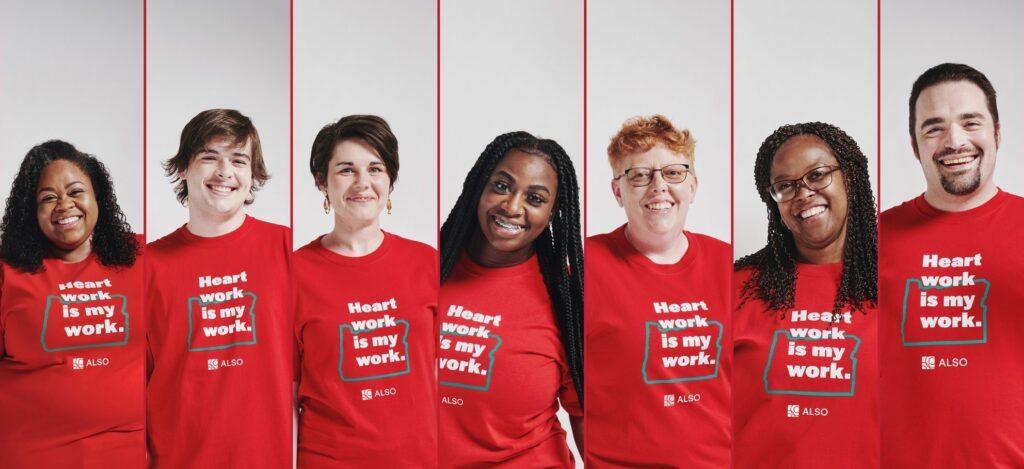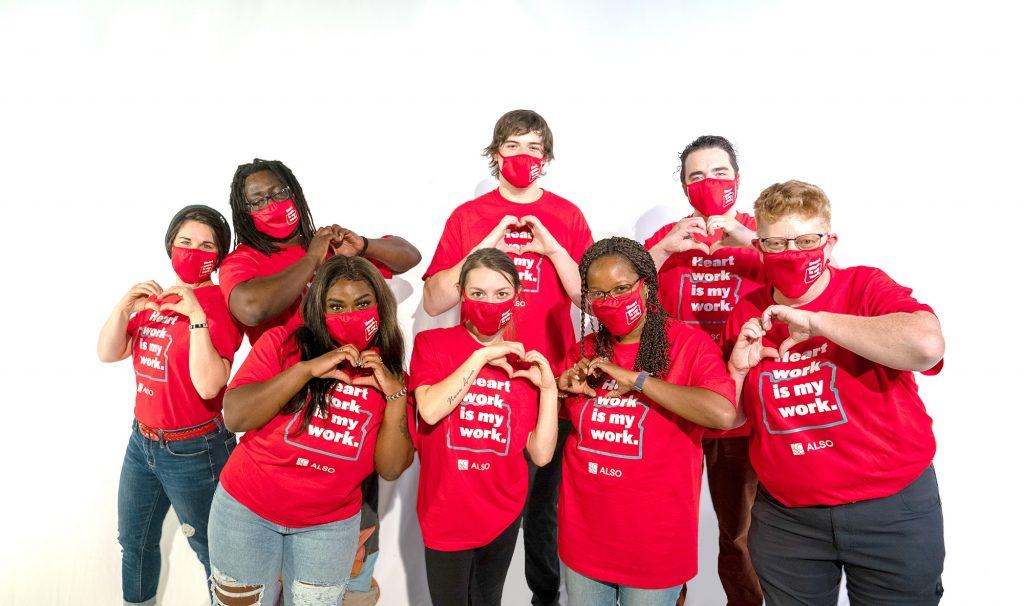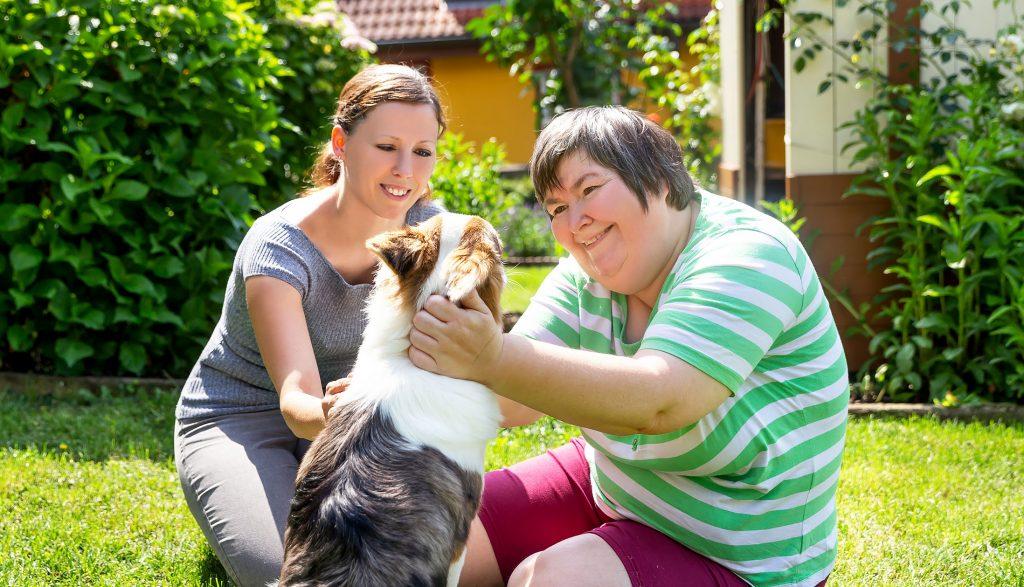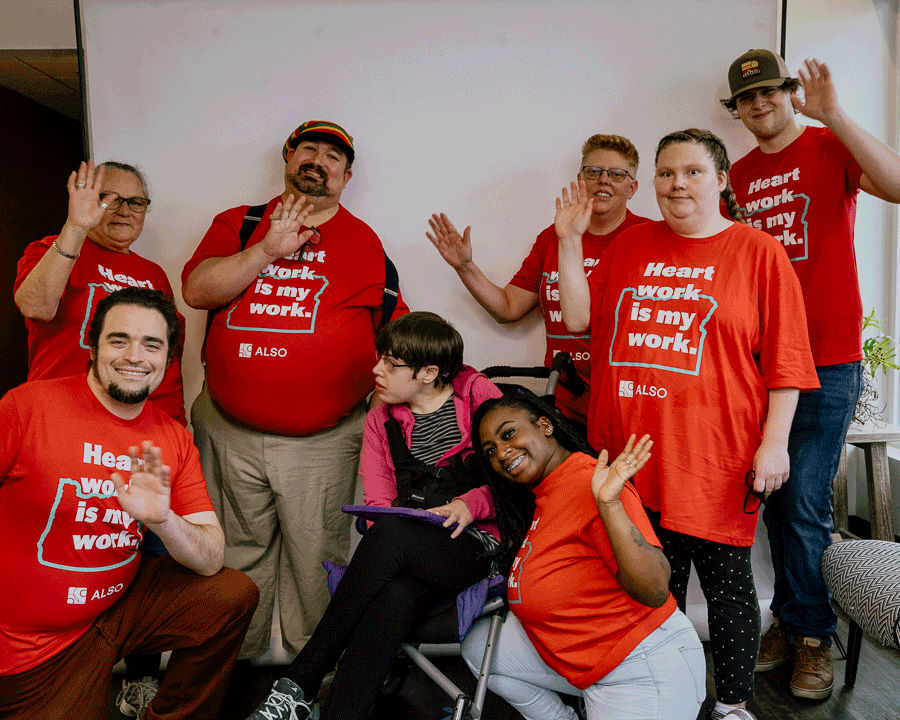Affordable housing for people with I/DD is in low supply. Learn what ALSO is doing to make a difference.
Affordable housing for people with I/DD is in low supply. Learn what ALSO is doing to make a difference.

Every person with an intellectual or developmental disability deserves the chance to live as independent a life as possible. He or she should be able to go to church, go to work, shop in the grocery store and have his or her own living space as their disability allows. Direct support professionals (DSPs) help make that happen. By providing a link between an individual with a disability and the community, DSPs help these individuals become an integral and contributing part of their communities. The role of a direct support professional benefits not only the individual with a disability, but also the community in which they live.

Direct support professionals are individuals who work closely with people who have physical, intellectual or developmental disabilities and help them integrate into their communities. Direct support professionals are different from caregivers in that they support a person in doing things for themselves and teach them how to live independently as opposed to simply doing things for them. Sometimes, these roles overlap, but a DSP will always encourage individuals to do things for themselves as much as possible.
Direct support professionals may work for non-profit organizations, state or local government entities or for private health care companies. Sometimes DSPs work for community organizations, such with a church outreach program or a private company with an initiative to provide jobs for people with disabilities.

The job duties of a direct support professional are vast and change with every person and situation. A DSP does what it takes to help their individual adapt well to life in their community. This might entail getting bus schedules for them to go to church or the market; accompanying them to school or vocational training class for the first time, so they know how to get there and where to go; and arranging transportation for them to go to medical appointments or even accompanying them to appointments. DSPs might teach living skills, perform cooking or light housekeeping duties, help maintain a safe living environment, and arrange for transportation. There is also some paperwork involved in this position, such as keeping case notes, medication logs and daily activity logs. Direct support professional careers might include work in a group home, a person’s home, a family home, a day habilitation center or out in the community.
Another important part of a direct support professional’s job duties is to advocate for their person and to ensure that the person doesn’t suffer physical or emotional abuse or is taken advantage of. DSPs are in a unique position to see any action by family, teachers or the medical community that crosses the line of ethical practices and is duty-bound to report such occurrences. In this, they can often speak for those who aren’t able to speak for themselves.
Every direct support professional job is unique and a DPS’s exact duties will depend on each person’s individual needs. Direct support professional work hours are often outside the typical 9-to-5 routine and may vary from week to week. Most direct support professional jobs are full-time and most work is during the daytime. However, weekend and holiday work may be required. Occasionally, as DSP will be required to work a “double” shift if the person scheduled to take over for them is unable to report to work.
The advent of direct support professionals has changed the way people with disabilities live. No longer are they dependent on their family member, doctor or other caregiver. They have a person to advocate for their needs, prevent abuse, and share their goals and aspirations.
Direct support professionals help to empower and equip people with disabilities that receive social services, so they can lead full, independent and meaningful lives. The one-on-one interaction with DSPs helps to promote self-determination and independence for individuals with disabilities.
There are currently more than 77,000 direct support professionals working in the United States and the demand for DSPs is growing dramatically. According to the US Bureau of Labor Statistics, the demand for DSPs is expected to grow by 40 percent by 2026. There is also growth available within the field. A typical direct support professional career path would be starting as a DSP, moving up to supervise several DSPs and moving on to be a Medicaid or care coordinator. The latter position generally requires having a two or four-year college degree.
According to a recent study by the Council on Quality and Leadership (CQL), DSPs are “crucial to support not only the health and safety but overall quality of life of people with disabilities”. This study also found that DSPs are essential “for the community inclusion and integration of people with disabilities”.
Direct support professionals need to be at least 18 years old and have a high school diploma or the equivalent. Work or life experience with people with intellectual, physical or emotional disabilities is helpful, but not essential. More important than experience is a passion for helping others.
Requirements for becoming a DSP vary by state, but most states require that DSPs pass a criminal background check and a drug test. If driving is required for your DSP position, you’ll also be asked for your driving record and proof of full-coverage car insurance. As with most health care positions, ongoing random drug testing is usually required.
Direct support professionals should have great communication skills to be able to share information with family members, other team members, and medical professionals. A good DSP should also be organized, dependable, and patient. Since DSPs often work alone, it is useful to be a self-starter and to be a good problem solver. Being able to stay calm in the midst of drama and stress is also beneficial, as people with developmental disabilities can’t always express themselves in a way that’s easy to understand and may become frustrated. A good DSP is also adaptable and can easily pivot from one task to another. A good day as a DSP is when you get to finish every task. On the more practical side, a DSP should be able to lift, pull, transfer and/or maneuver at least 50 pounds, as some individuals use wheelchairs or other devices for mobility.
While a DSP is health care job, you don’t need to have a degree in a health care-related field to become a DSP. Most employers value life experience over a degree for this position.
DSPs receive on-the-job training in first aid, CPR, abuse prevention and Oregon laws and regulations concerning people with disabilities. Certification is not required, but the National Alliance for Direct Support Professionals (NADSP) offers three levels of certification for DSPs. These are…
Obtaining these voluntary certifications can help you move up the DSP career path. NADSP also has an online e-badge program where DSPs can earn virtual badges by demonstrating their skill and knowledge in certain key areas, such as ethics and medical administration. NADSP also offers continuing education online courses on subjects like ethics, informed decision-making and the direct support professional career ladder.

If you are looking for a rewarding career in the Portland metro area, if you have a passion for helping others, we’d like to talk with you. We are always looking for good people to add to our team of patient, caring direct support professionals.
ALSO (Advocates for Life Skills and Opportunity), founded in 1997, is a nonprofit disability support services provider in the greater Portland, Oregon area. In addition to the Portland Metro area, we serve people in Deschutes County and Klamath County. ALSO is committed to full community inclusion and independence for people with intellectual and developmental disabilities.
We provide the best person-centered residential supported living services for individuals and families in their homes, workplaces and communities as well as employment opportunities and services to ensure that the people we support live the life of their choosing. We like to say that we see ability, not disability.
ALSO was named one of the top 100 non-profits in Oregon to work for in 2020 and one of the top 100 green companies in Oregon in 2021 by “Oregon Business” magazine.
Our motto is “Our work is Heart Work.”
If helping people with disabilities live their best life is something you think you’d enjoy, we invite you to learn more about becoming a direct support professional with ALSO. We offer a competitive salary as well as both signing and retention bonuses. To apply to be a DSP with ALSO, visit our website to see open DSP positions. We have multiple openings throughout the greater Portland area.

Sign up for our newsletter to get our latest news, content, and job opportunities.
Help us ensure that everyone has the same opportunities in their home, workplace and community. Let’s make dreams!
